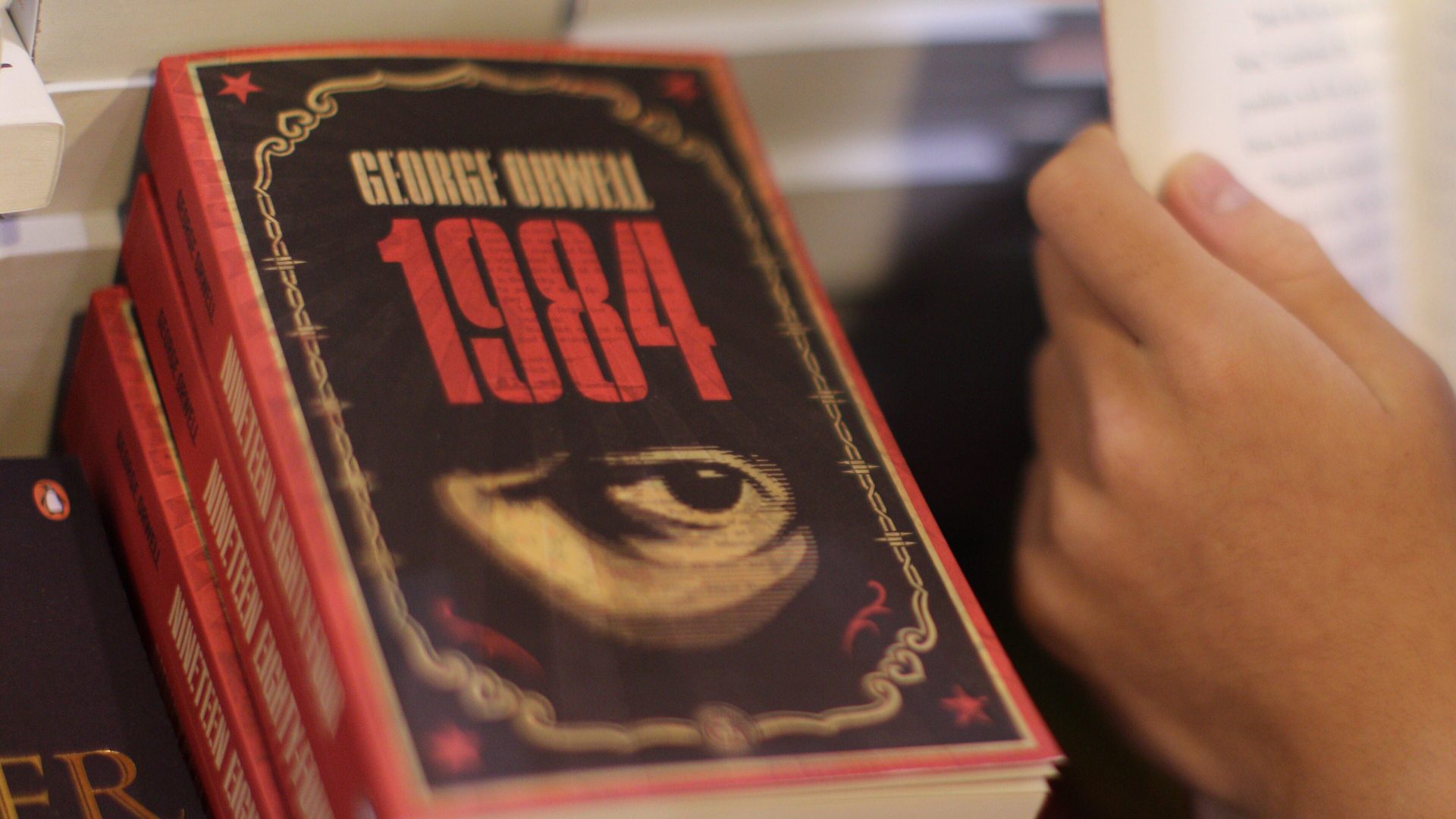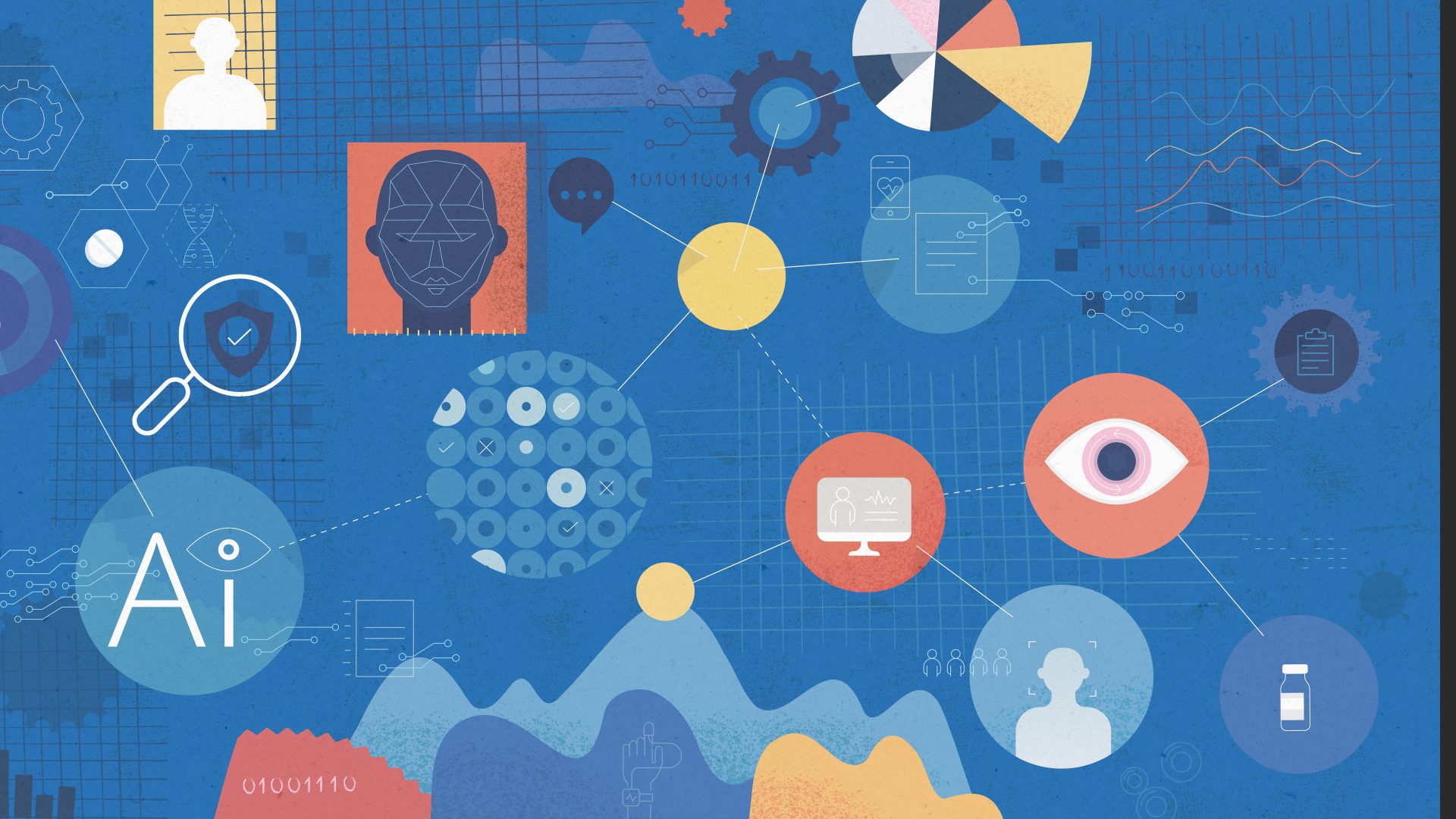The latest £2 coin celebrates George Orwell, one of our greatest writers, on the 75th anniversary of his death, January 21. On its reverse the famous line from Nineteen Eighty-Four, “Big Brother Is Watching You”, encircles what seems to be the iris of a large eye but is in fact part of a digital camera lens – a clever design.
The words “There was truth and there was untruth” inscribed around the coin’s edge could serve as a requiem for veracity following the decision to abandon external fact-checking of Facebook posts.
The coin design is ambiguous. In commemorating Orwell’s dystopian vision, it also seems to celebrate the all-seeing eye. Has the Royal Mint become subversive and issued a coin with an image that is openly critical of contemporary surveillance? Is the inscription an ironic comment on the tech broligarchs of X and Facebook and their open disdain for truth? That seems unlikely, but it’s how it reads today.
Even Orwell didn’t foresee the power of digital video media combined with facial recognition technology and computers that can process unimaginably vast quantities of data almost instantaneously. We live in a time of terrifying possibilities.
Every online transaction, digital purchase, text, medical record, or step we take leaves a legible trace that someone somewhere can use to target us. Businesses want our data, criminals want our data, states want our data. When the interests of business and authoritarian politics are closely aligned, as they seem to be in the US today, there may literally be no place to hide.
Some people in China feel that already. The artist Ai Weiwei angered the Chinese authorities in 2011. He was imprisoned for 81 days. For that time he was observed by two prison guards on rotation with other guards 24 hours a day.
Whether he was sleeping, sitting, showering or using the toilet, they were there either side of him, watching him. A video camera in his cell recorded everything. This torture by ultra-surveillance was more extreme even than the telescreen in the corner of Winston Smith’s room in Nineteen Eighty-Four.
Not for a second of those 11 and a half weeks was he alone or allowed to forget that he was being watched. On his release Ai Weiwei, being Ai Weiwei, used his experience as material for more political art, setting up his own webcam, Weiweicam, focused on his house: a parody of what he’d experienced in prison. The authorities, who themselves had 15 cameras trained on his property, swiftly put a stop to Weweicam. But this sort of conceptual art is hard to destroy.
In the late 18th century, the philosopher and social reformer Jeremy Bentham drew up plans for the panopticon, a prison designed to “grind rogues honest”. This allowed a few guards in a central tower to observe convicts in cells visible from that vantage point.
A similar design was used in the old British Library circular reading room, with a central observation station from which librarians could monitor readers in the “spokes” of desks that emanated on all sides from it. At any point, the prisoners or readers might be being watched – they couldn’t tell. The possibility of being seen and being punished if they misbehaved would be sufficient to pre-empt bad behaviour and to shape them into better habits, Bentham believed.
In his 1977 book Discipline and Punish, Michel Foucault used the panopticon as a metaphor for what he called the carceral society, one whose members internalise the power relations that control them. Anyone made visible in this way becomes his own observer and, Foucault claimed, “inscribes in himself the power relation in which he plays both roles; he becomes the principle of his own subjection”. The people end up policing themselves.
As the philosopher Carissa Véliz argued in her excellent book Privacy is Power, in an age of digital surveillance ordinary people, whose data is stolen from them often without them even realising it, can lose significant freedoms. There is so much at stake.
Those who say “if you have nothing to hide you have nothing to lose” are strangely complacent about what can happen to data, about who might want access to it, and the social consequences of this happening at scale. There have been so many leaks, and there is no guarantee of security. And when authoritarian populists who make no effort to conceal their intent to silence democratic critics come to power, as they are doing across the world, what better tool of suppression could they have than the digital panopticon?



